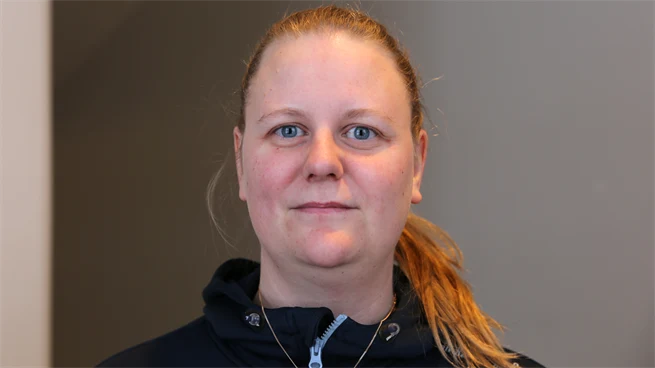More important to participate than to win, study on young biathletes shows
What if the Olympic motto – 'the most important thing is not to win, but to participate' – is true? The results of a new study in which researchers followed how young biathletes fare when they compete as seniors show that there is something to the motto.
The results of the research study are published in an article in the journal Frontiers in Sports and Active Living and constitute an interesting aspect to take with you now that the Junior World Championships in biathlon are held in Östersund from 25 February to 5 March.
"Our study emphasizes that biathletes must have a certain level of performance during their junior years, but we do not see that it is as important that you succeed in winning medals or top positions in the youth or junior World Championships to succeed as a senior. On the other hand, it seems to be an advantage to participate in international competitions at a young age to reach a high ranking in, for example, the World Cup and World Championships as an adult," says Malin Jonsson Kårström, researcher at the Swedish Winter Sports Research Centre at Mid Sweden University.
The link between junior and senior performance has been investigated in several different sports, but with the greatest emphasis on team sports. However, no previous study has examined the relationship between junior and senior performance in biathlon. The primary aim of the study was therefore to investigate whether the competition ranking in the Youth and Junior World Championships was related to World Cup performances as seniors.
All data was obtained from the International Biathlon Federation's database. Biathletes who ranked top 30 in the overall World Cup for ten consecutive competition seasons (2013/14 – 2022/23) were selected for further analysis. The study includes 82 men and 98 women, the majority of whom have competed in the Junior World Championships.
The biathletes were divided into performance groups based on their best World Cup ranking as seniors, where one group consisted of skiers ranked 1-6, another group of skiers ranked 7-15 and the third group consisted of skiers ranked 16-30. The analysis shows that the most successful biathletes reached several "milestones" in the World Cup (debut, top 40, 15, 6 and 3) at a younger age than their competitors, but there was no difference between the groups in results during the Youth or Junior World Championships.
Malin Jonsson Kårström, researcher at the Swedish Winter Sports Research Centre at Mid Sweden University. Photo: Pelle Fredriksson.
"This indicates that the development in training and performance during the late teenage years seems to be of greater importance than the actual ranking in the Youth and Junior World Championships. From a coaching perspective, it can therefore be important to gradually help athletes develop training volume and quality during their teenage years and support them even after they have finished high school at the age of 19–20," says Malin Jonsson Kårström.
Early specialisation is a debated area and the link between junior and senior performance is still unclear and may differ between different types of sports. From a federation perspective, it is important to support the biathletes in this phase and to provide opportunities for continued development of biathlon.
"For example, it may be wise not to choose athletes for a team or training group solely based on the ranking in the Youth or Junior World Championships, but also to take into account the potential training and physiological development to create future biathlon successes," says Malin Jonsson Kårström.
The study is based on a large amount of data, but there are still some limitations that are worth taking into account.
"On the one hand, results from the Junior World Championships can be somewhat more difficult to interpret because some of the best biathletes compete in the senior World Championships in the last years of their junior years, instead of the junior competitions. On the one hand, the results of the study could be different if we used performances in the World Championships or the Olympics as a senior instead of World Cup results. However, we chose that path because the ranking of the overall performance throughout the competition season is highly ranked by biathletes and coaches," says Malin Jonsson Kårström.
Here you can read the article in Frontiers in Sports and Active Living.
Contact person:
Malin Jonsson Kårström, researcher at the Swedish Winter Sports Research Centre, Mid Sweden University, +46 (0)70-626 19 90, malin.m.jonssonkarstrom@miun.se
Contact

